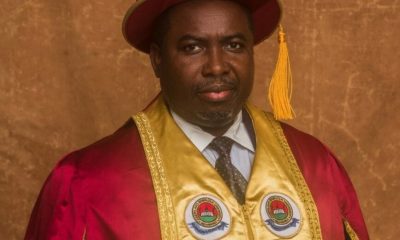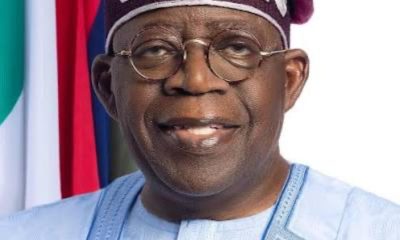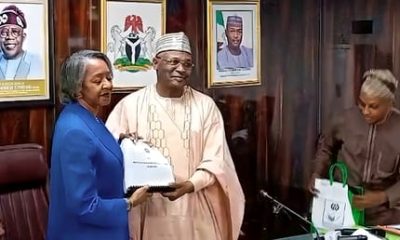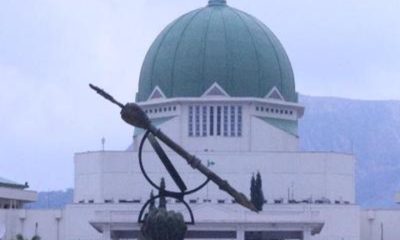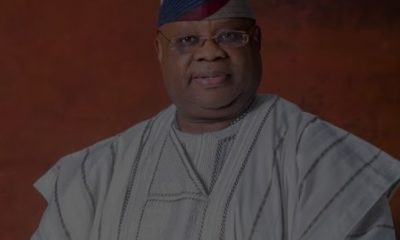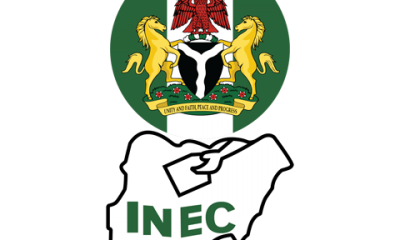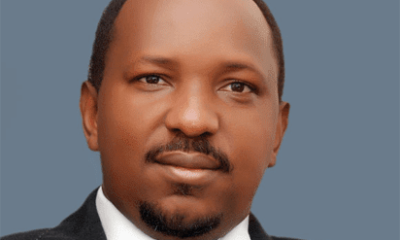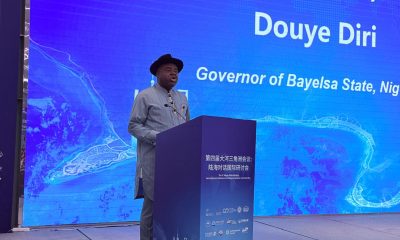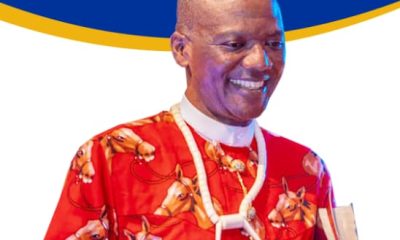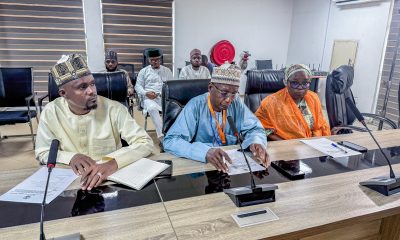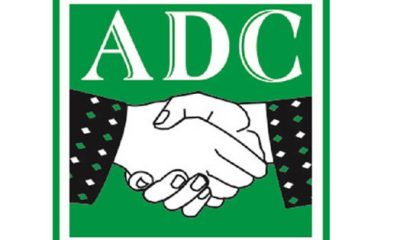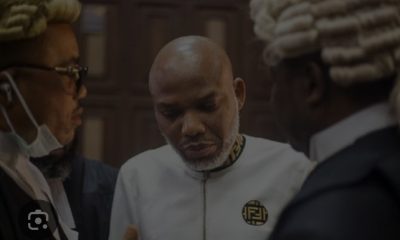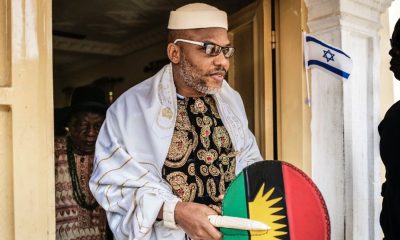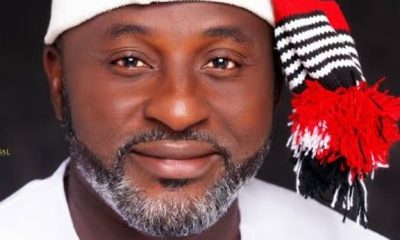Politics
Natasha vs Senate:Don’t Politicise, Trivialise Call for Due Process in Senate -Saraki tells Akpabio
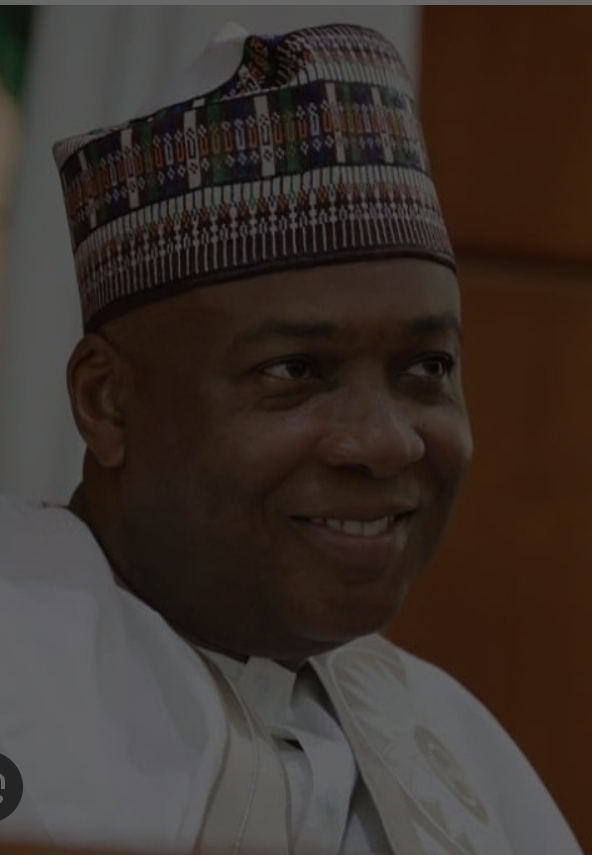
 Senate President, Godswill Akpabio
Senate President, Godswill AkpabioPolitics
When Transparency Becomes Luxury: INEC and ₦1.5B FOI Controversy
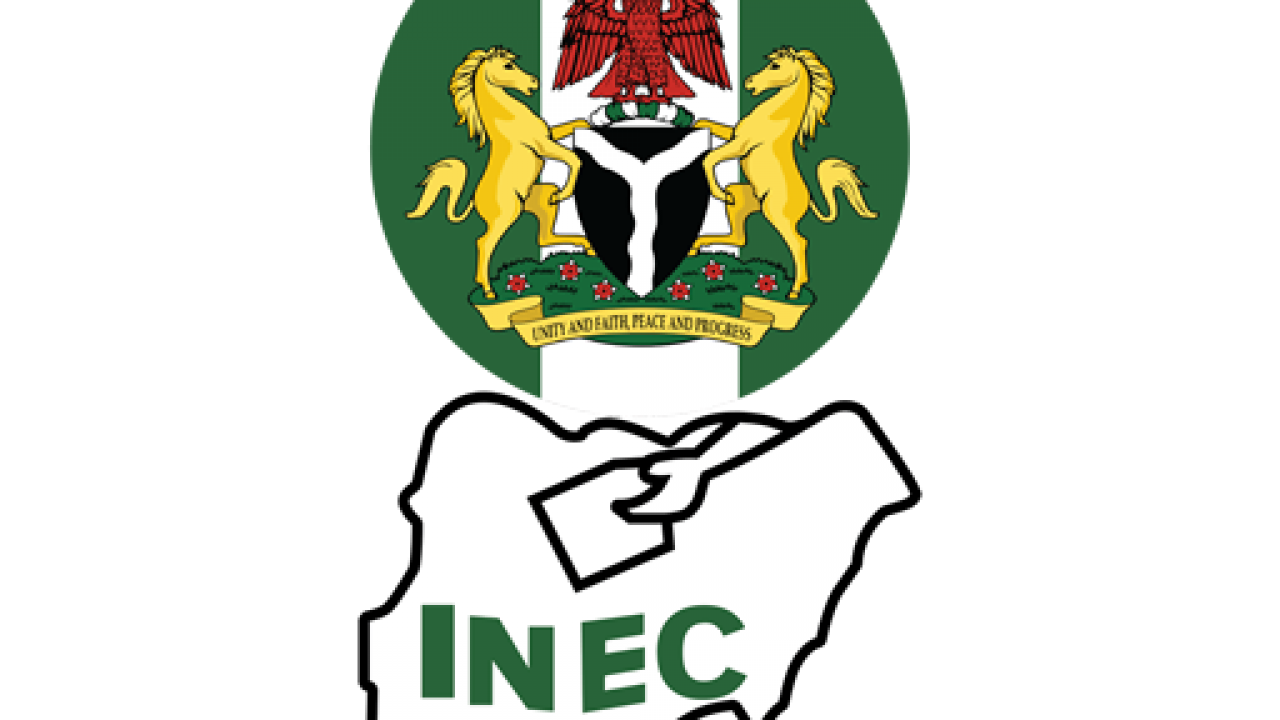
When Transparency Becomes Luxury: INEC and ₦1.5B FOI Controversy
By Chike Walter Duru
When the Independent National Electoral Commission (INEC) recently demanded a staggering ₦1.5 billion from a law firm for access to the national register of voters and polling units, many Nigerians were left bewildered. The request was made under the Freedom of Information (FOI) Act, 2011 – a law designed to make public records accessible, not to commercialize them. INEC’s justification, couched in legalese and bureaucratic arithmetic, raises a deeper question: Is Nigeria’s electoral umpire genuinely committed to transparency and accountability?
At the heart of this controversy is a simple statutory principle. Section 8(1) of the Freedom of Information Act clearly stipulates that where access to information is granted, the public institution may charge “an amount representing the actual cost of document duplication and transcription.” The framers of this law envisioned modest fees; not financial barriers.
INEC, however, appears to have stretched this provision beyond reason. By invoking its internal guideline of ₦250 per page, the Commission arrived at the colossal figure of ₦1,505,901,750 for 6,023,607 pages – supposedly the total pages needed to print the entire national voters’ register and polling unit list. It is a mathematical exercise that may be sound on paper, but absurd in context and intent.
Let us be clear: transparency is not a privilege that comes with a price tag. It is a fundamental right. The Freedom of Information Act exists precisely to ensure that institutions like INEC cannot hide behind bureaucracy or cost to deny citizens access to information that belongs to them.
INEC’s justification, however elaborate, falls flat against the law’s overriding provisions. Section 1(1) of the FOI Act affirms every Nigerian’s right to access or request information from any public institution. More importantly, Section 1(2) establishes that this right applies “notwithstanding anything contained in any other Act, law or regulation.” This means that no internal guideline, regulation, or provision of the Electoral Act can supersede the FOI Act, within the context of access to information.
By relying on Section 15 of the Electoral Act 2022 and its own “Guidelines for Processing Certified True Copies,” INEC seems to have elevated its internal processes above a federal statute – a position that is both legally untenable and administratively misguided.
Civil society organisations have rightly condemned INEC’s response. The Media Initiative Against Injustice, Violence and Corruption (MIIVOC) called the fee arbitrary and unlawful, while the Media Rights Agenda (MRA) described it as a deliberate attempt to frustrate legitimate requests under the FOI Act. These reactions are not misplaced. Charging ₦1.5 billion for public records is tantamount to weaponising cost – turning what should be a transparent process into a pay-to-play system.
The Attorney-General of the Federation’s FOI Implementation Guidelines pegged the standard charge for duplication at ₦10 per page. Even at that rate, printing the same documents would not amount to anything close to ₦1.5 billion. Moreover, in an age of digital data, it is difficult to believe that the only way INEC can share information is through millions of printed pages.
It is worth noting that the National Register of Voters is a digital database – already compiled, stored, and backed up electronically. The polling unit list is also digitised and publicly available. What, then, justifies this astronomical fee?
Democracy thrives on openness. The credibility of any electoral body depends not just on the conduct of elections, but also on the degree of public confidence in its processes. If the cost of accessing basic electoral data runs into billions, how can civil society, researchers, or ordinary citizens participate meaningfully in democratic oversight?
The African Commission on Human and Peoples’ Rights’ Guidelines on Access to Information and Elections in Africa (2017) are explicit: election management bodies must proactively disclose essential electoral information, including voters’ rolls and polling unit data. Nigeria, as a signatory to this framework, is obligated to promote – not restrict access to such information.
By placing financial barriers in the way of public access, INEC risks undermining not only its own credibility but also Nigeria’s broader democratic integrity. Transparency should not be a privilege of the rich or the powerful. It should be a right enjoyed by all.
This incident presents an opportunity for reflection and reform. INEC must immediately review its internal cost guidelines for information requests and align them with the FOI Act and the Attorney-General’s Implementation Guidelines. More importantly, it should embrace proactive disclosure by publishing the national register of voters and polling units in digital formats that are freely accessible to the public.
There is no reason why information already stored electronically should require billions to access. Doing so not only contravenes the spirit of the FOI Act but also erodes public trust in the Commission’s commitment to open governance.
Access to information is the lifeblood of democracy. It empowers citizens to hold institutions accountable and ensures that governance remains transparent. INEC’s ₦1.5 billion charge is not merely excessive; it is a dangerous precedent that could embolden other public institutions to commercialize public data and silence scrutiny.
If Nigeria must advance its democratic gains, the culture of secrecy and bureaucratic obstruction must give way to openness and accountability. INEC should lead that transformation, not stand in its way.
The Commission owes Nigerians not just elections, but the truth, transparency, and trust that sustain democracy.
Dr. Chike Walter Duru is a communications and governance expert, public relations strategist, and Associate Professor of Mass Communication. He chairs the Board of the Freedom of Information Coalition, Nigeria. Contact: walterchike@gmail.com
Politics
Don’t use alleged coup plot to silence opposition, ADC cautions FG

By Abdul-Ganiyy Akanbi
African Democratic Congress, ADC, has cautioned the federal government against using the recent news of an alleged coup plot as a pretext to clamp down on opposition leaders and begin extra-judicial surveillance on voices that do not agree with it.
The party, in a statement signed by its National Publicity Secretary, Mallam Bolaji Abdullahi, said it views any threat to Nigeria’s democratic order with utmost seriousness, but warned that the federal government must not exploit this moment to instil fear, silence dissenting voices, or engineer political advantage under the guise of national security.
The statement reads: “The ADC has been closely monitoring the reports of an alleged coup plot involving arrested military officers and subsequent media claims that a former Southern governor is under investigation for allegedly funding the suspects. While we vehemently oppose any effort to undermine Nigeria’s constitutional order, we are equally concerned about the potential misuse of such allegations to justify political witch-hunts, suppress dissent, or manipulate public sentiment.
“We are particularly concerned about the conflicting signals coming from government sources, especially as the Defence Headquarters has publicly denied ever mentioning a coup plot, despite widespread media reports to the contrary. Such inconsistency raises serious fears that the coup narrative may have been politically engineered.
“The ADC is particularly concerned that the federal government has not deemed it fit to make a categorical statement on this very serious matter, especially after the military authorities had repeatedly denied that there was such a threat to the government. By keeping quiet, the government has deliberately allowed the coup story to fester for whatever reason.
“What is clear, however, is that the government is exploiting the coup story to divert attention from the real issues of mis-governance in the country and to curry sympathy. Even more significantly, subsequent unattributed media reports purportedly implicating unnamed politicians in the so-called plot now provide a pretext for the government to clamp down on opposition figures or mount undue surveillance on them.
“We understand that the APC government is desperate. But such desperation must never be allowed to endanger our democracy or undermine the democratic rights of citizens.
“The ADC therefore calls on the federal government to immediately clarify the true nature of the alleged coup. Government has a duty to decisively quash the swirling rumour. Conversely, if indeed there has been any such threat to national security, the government has a duty to be transparent about it and brief the nation accordingly. Government must desist from weaponising national security as a pretext to silence opposition and political dissent.
“The ADC is resolute in its opposition to dictatorship of any form, whether military dictatorship or its civilian variant. We therefore support any legitimate action that may be taken in defence of our constitution and our democracy. In the same vein, we oppose any ploy by the government to intimidate legitimate voices under the guise of national security.”
Politics
HURIWA Slams FG, IGP, Army Chief for Turning Abuja Into War Zone Over Peaceful Pro-Kanu Protest
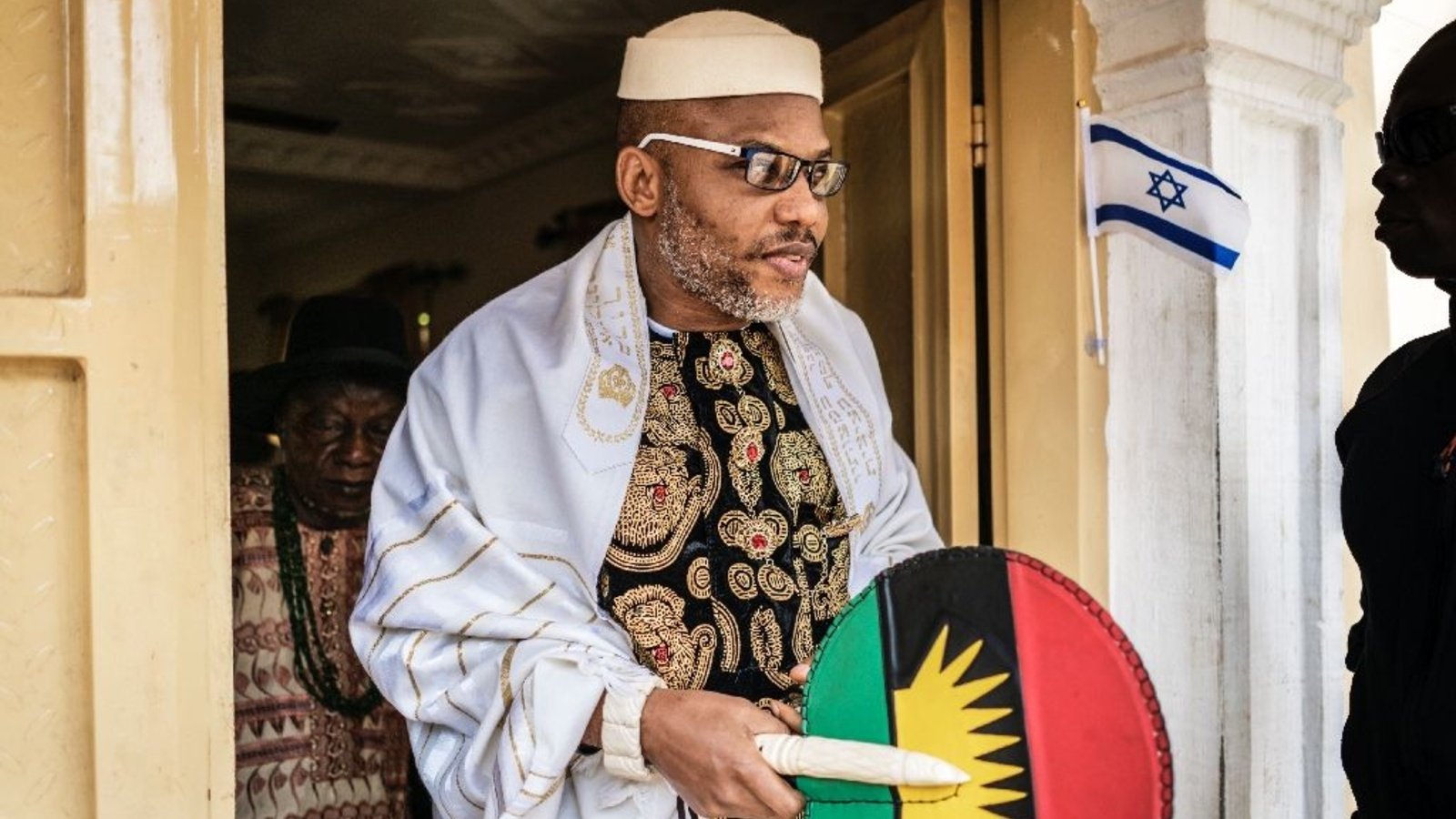
By George Mgbeleke
The Human Rights Writers Association of Nigeria (HURIWA) has come down heavily on the Federal Government, the Inspector-General of Police, and the Chief of Army Staff, over what it described as a shameful, lawless, and dictatorial clampdown on peaceful Nigerians who gathered in Abuja to demand justice and the release of Mazi Nnamdi Kanu.
The Association said the disgraceful show of force witnessed in the Federal Capital Territory on Monday was proof that the Nigerian government under President Bola Ahmed Tinubu is descending deeper into militarized tyranny, where peaceful dissent is treated as treason and citizens are ruled through fear instead of justice.
HURIWA said it was both “laughable and tragic” that an entire capital city could be locked down simply because a handful of young Nigerians said they would march peacefully to ask for justice. “Why is the government this afraid of its own people?” the group asked. “What is it hiding? Only leaders with unclean consciences fear the sight of citizens expressing themselves. Only dictators, tyrants, and looters of public funds are terrified of seeing hungry, frustrated Nigerians pour into the streets to speak truth to power.”
The rights group described as “insanity in uniform” the deployment of hundreds of soldiers, armored vehicles, and police patrol teams across major routes in Abuja, turning what should have been a peaceful civic action into a tense military siege. It said the reckless action of the security agencies crippled economic and commercial activities across the city; banks were shut, filling stations stopped dispensing fuel, commuters were stranded, and private businesses lost billions of naira in a single day.
HURIWA blamed the chaos on the paranoid conduct of the Police and the Army, accusing both institutions of creating unnecessary panic and tension. “The protesters were not armed, not even with a stone,” it said. “Yet live ammunition and tear gas were fired at harmless citizens. The government must explain why such unconstitutional brutality was unleashed on people whose only ‘crime’ was demanding justice.”
The Association also faulted the security advisory issued by the United States Embassy warning its citizens to stay away from the protest venues, describing it as “a foreign conspiracy against Nigeria’s democracy.” It questioned why a sovereign government would allow itself to be guided by what it called “a baseless, imported panic message” to justify domestic repression. “Did Nigerians invite Americans to the protest? Did they plan to storm the US Embassy? That advisory was totally irrelevant, yet the government used it as an excuse to flood Abuja with troops. It smacks of complicity,” HURIWA declared.
The group warned that the government’s growing intolerance for peaceful protests is a dangerous provocation that could one day spiral out of control. “If you keep pushing citizens to the wall, they will fight back,” HURIWA cautioned. “No government can suppress the people forever. Hunger and injustice will always find a voice. Nigeria is not a military barracks; it is a democracy; at least, it is supposed to be.”
It accused the Tinubu administration of ruling with fear and intimidation, saying the clampdown exposed an embarrassing level of insecurity within government circles. “Even if protesters marched toward Aso Rock, they could never breach its walls. That place is impenetrable and heavily guarded. So, what exactly is the government afraid of? The truth?” HURIWA asked.
The group demanded that the Federal Government immediately halt the use of soldiers for crowd control, release all arrested protesters without delay, and pay compensation to business owners whose operations were crippled by the security lockdown. It also urged the National Human Rights Commission and international human rights bodies to launch independent probes into the violent disruption of the protest.
HURIWA further warned that Nigeria’s democracy is being choked by a leadership that mistakes citizens’ cries for justice as threats to its survival. “This is not the democracy Nigerians fought for,” the statement said. “When a government uses live bullets on its own people for daring to ask questions, it has lost moral legitimacy. Those who are clean do not fear accountability. It is those with blood and corruption on their hands who tremble at the voice of the people.”
The Association reiterated that peaceful protest is a constitutional right, not a privilege. It said the continued militarization of civic spaces will only deepen public resentment and erode trust in government institutions. “No government that silences its people can ever claim to be democratic,” HURIWA said. “Nigeria’s rulers must stop this war on citizens and start governing with conscience.”
-

 Business & Economy2 months ago
Business & Economy2 months agoPC-NCG Issues Disclaimer on Purported Nigerian Coast Guard National Orientation Exercise In Anambra State
-

 Entertainment1 year ago
Entertainment1 year agoJubilation galore as Parishioners of CKC Kurudu celebrate their cultural heritage ….FG should exploit our Cultural heritage to unite Nigerians-Rev Fr Dim
-

 Law & Crime4 months ago
Law & Crime4 months agoICPC pledges to collaborate with FIDA to end Sex for Marks in tertiary institutions
-

 General News1 year ago
General News1 year agoCelebration galore as UDA Successfully Elected New Exco ……I will digitalize processes that will raise UDA to greater height -Comr. Okejiri
-

 General News1 year ago
General News1 year agoReps hold public hearing on FMC Ugwuaji Awkunanaw
-

 Law & Crime3 months ago
Law & Crime3 months agoLegal practitioner raises alarm over threat to his life by CSP Muhammed Abdulkareem
-

 General News1 year ago
General News1 year agoKugbo Hill Tragedy: Trailer Crushes Car, Kills Four and Injures Several Others in Abuja
-
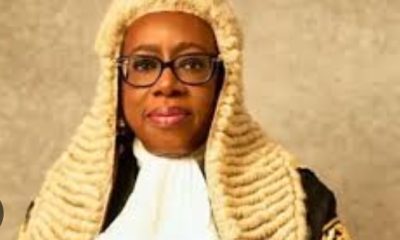
 Uncategorized9 months ago
Uncategorized9 months agoBenue govt drags NDIC to Federal High Court over illegal sell of shares …Demands N2.6billion damages


